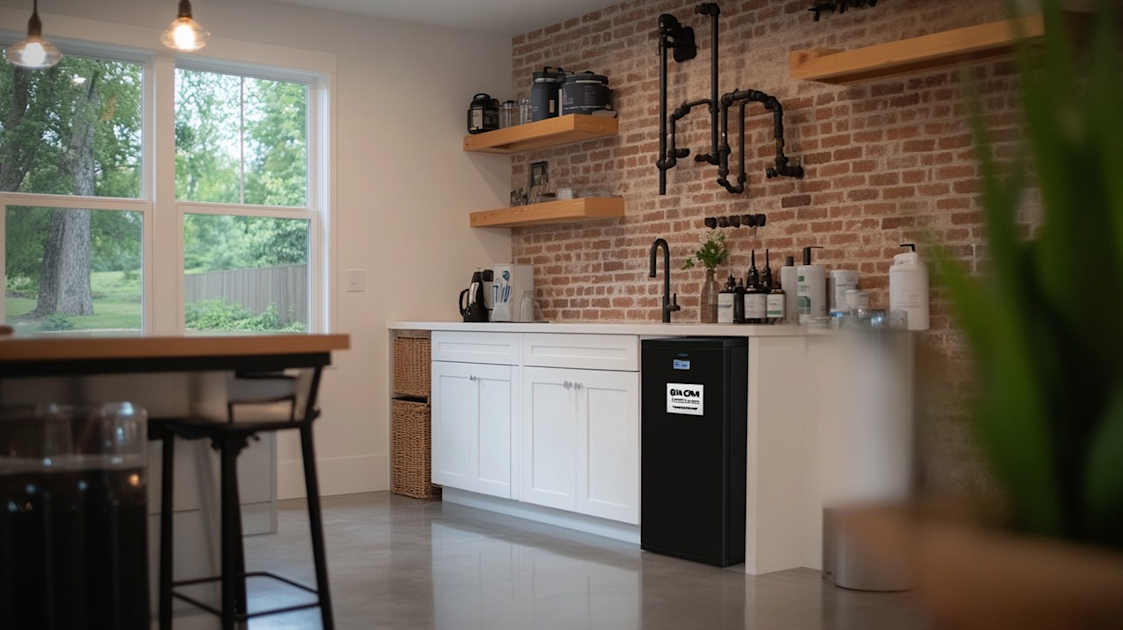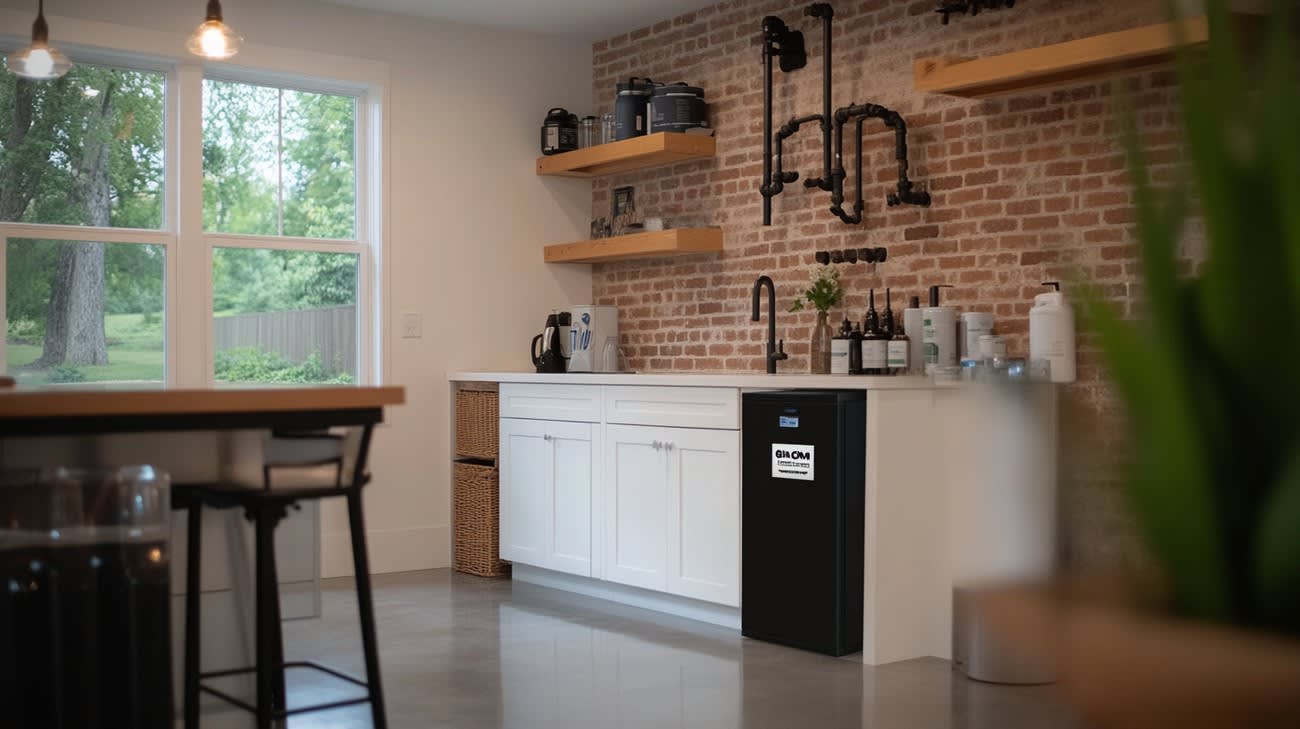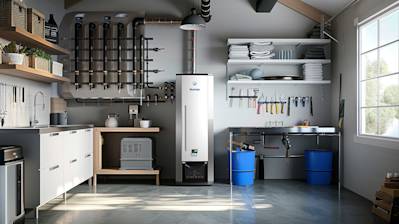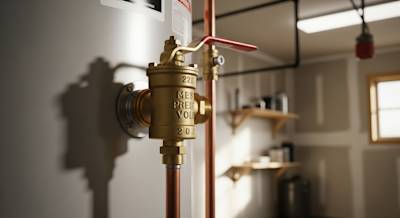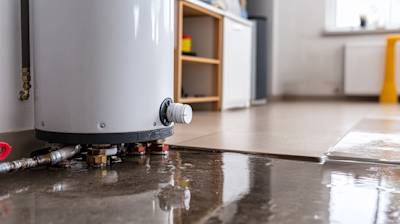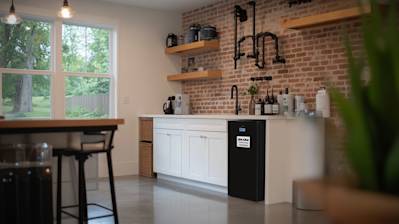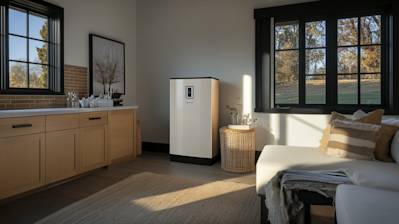Choosing the right water heater for your home can be quite challenging with the many options available in the market. This blog will focus on one of the most popular choices: the gas water heater. We aim to equip you with everything you need to know about gas water heaters, ranging from what they are, their types, benefits, to installation and maintenance tips.
What is a Gas Water Heater?
A gas water heater is a heating system that uses gas – predominantly natural gas or propane – as fuel to heat water. This type of water heater comes with a tank that holds and heats water, ready to supply your household needs whenever required. Remember, they can be conveniently switched on and off, providing the flexibility required for your bathing needs.
Types of Gas Water Heaters
To make an informed decision, it's important to understand different types of gas water heaters. Broadly, we can categorize them into two:
Tank Water Heaters
These are traditional models that have been in use for a long while. They store and heat a large volume of water in a tank. The capacity can range from 20 to 80 gallons.
Tankless Water Heaters
As the name suggests, tankless water heaters do not store water. Instead, they heat water on-demand, as it flows through the system. They are also known as instantaneous or demand-type water heaters.
Benefits of Gas Water Heaters
Here are some of the benefits that gas water heaters offer:
- Energy Efficiency: Gas water heaters are usually more efficient than their electric counterparts, despite the higher initial costs.
- Fast Heating: Gas water heaters heat water faster than electric models.
- Operate During Power Blackouts: Unlike electric water heaters, gas water heaters can still operate in instances of power blackouts, making them a more reliable option.
The Installation Process of a Gas Water Heater
Installing a gas water heater involves several steps and precautions due to the fuel involved. Here is a simplified overview:
- Choose the Ideal Water Heater: There are multiple factors to consider, such as the size of your household and the amount of hot water needed.
- Install Venting System: Gas water heaters need a venting system to safely get rid of the combustion gases.
- Connect Gas Lines: It's imperative to hire a professional to handle gas lines to avoid accidental gas leaks which can be harmful or deadly.
- Connect Water Lines: Connect the water input and output lines to the heater. Also, ensure the presence of a pressure relief valve.
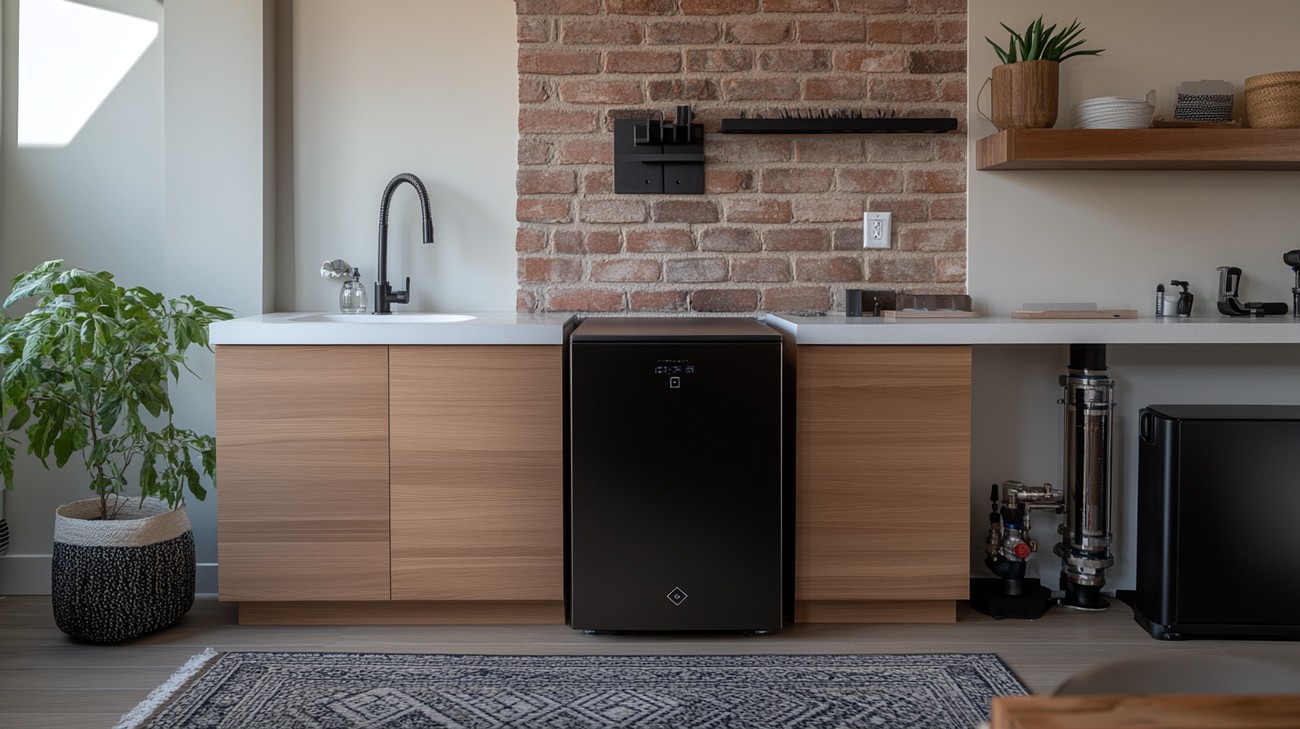
Frequently Asked Questions about Gas Water Heater
How Does a Gas Water Heater Work?
A gas water heater works by utilizing natural gas to fuel a burner to heat the water. If you own a traditional model, the heated water is stored in a tank ready for use. When you turn on the tap, the hot water travels from the tank through your home's pipes to your faucet. In contrast, a tankless model heats water directly without the use of a storage tank. When a hot water tap is turned on, cold water travels through a pipe into the unit where a gas burner heats the water.
How Often Should I Maintain my Gas Water Heater?
Professional maintenance of a gas water heater should be carried out every six months to a year, depending on your manufacturer's specific recommendations and the heavy usage of the unit. Regular maintenance will ensure that your gas water heater operates efficiently and safely.
Is a Gas Water Heater More Efficient than an Electric Water Heater?
Yes, typically gas water heaters are more energy-efficient than electric water heaters. They heat water faster and thus, less energy is required. They also tend to have a lower operating cost because natural gas is generally cheaper than electricity.
What’s the Typical Lifespan of a Gas Water Heater?
On average, a household gas water heater's lifespan is around eight to twelve years. However, with regular maintenance, it can last up to 15 years. It's also essential to note that the lifespan may vary based on factors such as the unit's design, the quality of installation, maintenance schedule, and water quality.
Why Is My Gas Water Heater Not Producing Hot Water?
Several issues could cause your gas water heater to stop producing hot water. These can range from a broken thermostat, a malfunctioning gas valve, or the pilot light not staying ignited. It's best to seek professional assistance if your gas water heater stops working to accurately diagnose and fix the issue.
How Much Should I Expect to Pay for a Gas Water Heater?
The cost of gas water heaters can vary tremendously depending on the type, brand, and size. On average, a standard tank gas water heater can range between $300 to $600. Meanwhile, gas tankless heaters can cost anywhere between $800 to $1,500. It's important to note that these costs do not include installation fees, which could also vary substantially.
How Do I Safely Operate a Gas Water Heater?
To ensure safe operation of your gas water heater, always ensure it is installed and serviced by a professional. Regular maintenance is essential to identify any potential issues. Be alert to any unusual smells or noises, which could indicate a gas leakage or other problems. Make sure the area around your gas water heater is free of flammable materials and ensure sufficient combustion air is available to prevent carbon monoxide build-up.
Can I Install a Gas Water Heater Myself?
While it's possible, it's not recommended for the average homeowner because it involves dealing with gas lines. Installation requires specialized knowledge and skills to ensure safety and efficiency. Any errors in installation can cause future expensive repairs or serious safety hazards including gas leaks or carbon monoxide poisoning.

Pros of Gas Water Heaters
Quick Heating Times
One of the most significant benefits of gas water heaters is their ability to heat water quickly. The rate at which they operate is almost twice that of electric water heaters. This high efficiency makes them an excellent choice for large families or households with high hot water demand.
Lower Operational Costs
Despite the higher upfront costs associated with purchasing a gas water heater, the operational costs tend to be lower than for electric water heaters. Natural gas is generally cheaper than electricity, so households with a gas water heater can expect lower utility bills.
Continue to Work During Power Outages
Having a gas water heater ensures that you still have access to hot water, even in a power outage. This is a significant advantage, especially in areas prone to power outages due to severe weather conditions.
Environmentally Friendly
Although all forms of energy have some environmental impact, natural gas is one of the cleanest fossil fuels. Choosing a gas water heater over an electric one can slightly reduce your household's carbon footprint.
Available in Tankless Options
Gas water heaters are available in both tank-style and tankless options. The tankless models are convenient for smaller households and properties with limited space. They provide hot water on demand, eliminating the need for a bulky storage tank.
Cons of Gas Water Heater
Higher Initial Costs
While gas water heaters may have lower operational costs, their purchase and installation costs are generally higher than their electric counterparts. Additional components, such as venting systems, are necessary for gas water heaters, adding to the overall cost.
Installation Complexity
Installation of a gas water heater isn't a DIY task. It requires a professional because it involves dealing with natural gas and requires complex venting for safety reasons. If wrongly done, it can lead to potential dangers, including a gas leak or carbon monoxide poisoning.
Requires More Space
Gas water heaters typically require more space than electric models because of the need for proper venting. They also have to be located near a gas line. If you live in a compact home or apartment, this could pose a problem.
Risk of Gas Leaks or Explosions
Even though they are built to be safe, gas water heaters still carry the potential risk of gas leaks or explosions. Therefore, regular maintenance and inspections are vital to ensure safety.
Less Energy Efficient
Although gas water heaters heat water faster, they usually are less energy-efficient than electric models. The reason is the standby losses that come with a pilot light. Although there are models without a constantly lit pilot light, they still tend to be less efficient than their electric counterparts.
Periodic Maintenance Required
Gas water heaters require more frequent maintenance than electric models. This includes checking the anode rod, periodically draining the tank to remove sediment, and inspecting the venting system. Neglecting maintenance can reduce the unit’s lifespan and affect its efficiency.

Myths and Misconceptions about Gas Water Heaters
Gas water heaters are a common and essential piece of household equipment, providing warm water for cooking, cleaning, bathing, and other daily chores. Despite their ubiquity, a lot of misinformation and myths surround these devices, preventing homeowners from getting the most out of their water heaters.
Myth 1: All Gas Water Heaters Are the Same
Reality
There is a common perception that all gas water heaters operate the same way and deliver the same output. While it's true that they all function by heating water with gas, the similarities often end there. Gas water heaters come in different types, such as tankless water heaters, storage tank water heaters and condensing water heaters, each with its unique features and capabilities. The energy efficiency, water heating speed, and lifespan can greatly vary from one model to another.
Myth 2: Bigger Is Always Better
Reality
Many people believe that a bigger gas water heater will always provide a superior performance. This isn't necessarily true. The size of your water heater should be determined by your household's hot water needs. A large family might require a bigger tank, but for a small household, a compact heater could be just right. An oversized water heater can lead to energy wastage, while an undersized one may not meet your hot water demands.
Myth 3: Setting a Higher Thermostat Setting Warms Water Faster
Reality
It might seem logical that increasing your gas water heater's thermostat setting will result in hotter water faster. While the water will indeed be hotter, it won't heat up any quicker. Water heaters are designed to heat a certain amount of water at a particular rate, regardless of the temperature set. Additionally, excessively high thermostat settings can increase your energy costs and potentially scald users.
Myth 4: Gas Water Heaters Don't Need Regular Maintenance
Reality
This idea couldn't be further from the truth. Like any appliance, regular maintenance can extend the life of your gas water heater and ensure it operates efficiently. This can involve tasks such as checking for leaks, draining the tank to remove sediment, inspecting the heater's anode rod, and tuning up the burner.
Myth 5: The Lifespan of All Water Heaters Is the Same
Reality
A gas water heater's lifespan can vary greatly depending on the maintenance it receives, its build quality, and the hardness of the water it heats. Some may last less than a decade, while others will serve their owners for well over 20 years.
Myth 6: A New Water Heater Will Pay for Itself in Energy Savings
Reality
While new, energy-efficient gas water heaters can help you save on your energy bills, it may take several years to recoup the cost of the unit and its installation. However, this doesn't mean purchasing a new unit isn't worth it. The added reliability and performance benefits often justify the price.
Myth 7: Any Plumber Can Install a Gas Water Heater
Reality
While it's true that a lot of plumbers can install a gas water heater, it's safer and often more efficient to have a certified professional do it. Installation requires knowledge of gas lines, ventilation requirements, and local plumbing codes.
Myth 8: You Can Save Money by Heating Water with a Gas Water Heater Only When You Need It
Reality
It's a common myth that you'll save money by only heating water when you need it. However, the cost of constantly heating and cooling your tank can add up over time, eating up any potential savings. The more efficient option is generally to keep your gas water heater running constantly but at a lower temperature.
Understanding the realities behind these common myths about gas water heaters can help you make informed decisions regarding their purchase, maintenance, and use. This can help you get the most out of your existing or future gas water heater and prolong its lifespan.
Summary
So, if you're tired of cold showers and want to improve your home's energy efficiency, a gas water heater might just be the solution. Its one-time investment can truly make a difference in utility costs, so you end up saving money in the long run. Plus, you don't have to wait forever for a hot shower. They can heat water faster than electric models and can still operate during power outages. It's truly a win-win situation there.
When it comes to gas water heaters, it's clear to see they offer several advantages. But it doesn't mean they're a perfect fit for everyone. Homeowners need to consider whether they're ready to handle the maintenance and ventilation requirements that come with these heaters. But generally speaking, ease of use, overall efficiency, and reliable functionality make them a top choice for many.
The world of gas water heaters is quite diverse. It's not just about picking these machines off the shelf. Their installment to safe operation, everything requires careful consideration and potentially, professional assistance. Yet, with the right choice, you will undeniably relish the comfort of warm water and peace of mind knowing you made an eco-friendly choice. The benefits outweigh the hurdles, and for many people, the switch to a gas water heater makes perfect sense.
About KYPD Plumbing
KYPD Plumbing is your friendly neighborhood expert in all things plumbing in Lexington, KY. With a team of seasoned professionals, we are committed to delivering top-notch services with a keen focus on customer satisfaction. Our services range from leak repairs, installation, maintenance and everything else plumbing related! We're not just service providers, we're problem solvers, going the extra mile to ensure your home or business plumbing runs smoothly. At KYPD Plumbing, we combine professionalism, high-quality materials, and a warm, approachable team who loves what they do, making us Lexington's go-to plumbing service providers.
Tags: gas, water heater, home appliances,

